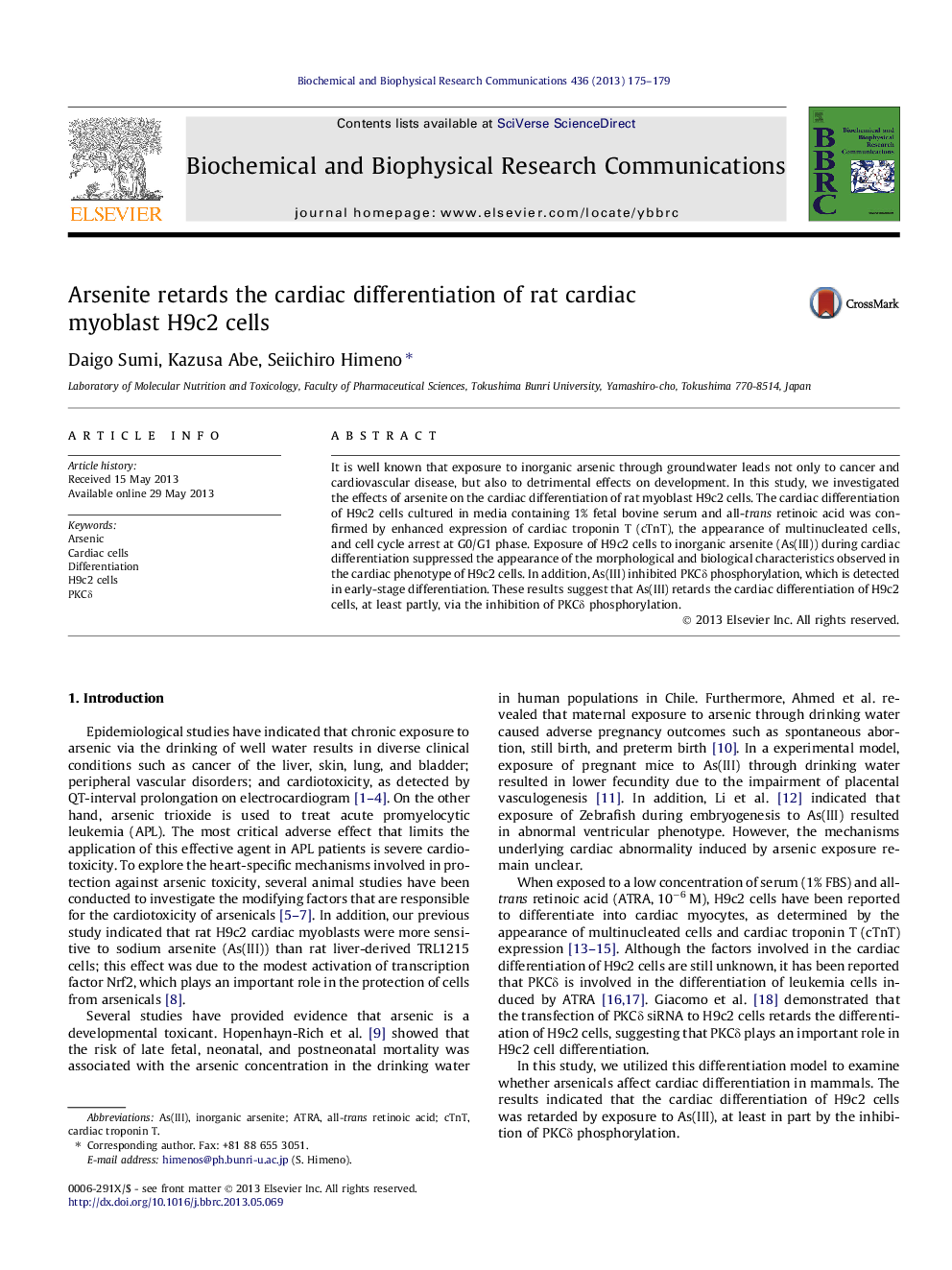| Article ID | Journal | Published Year | Pages | File Type |
|---|---|---|---|---|
| 10759201 | Biochemical and Biophysical Research Communications | 2013 | 5 Pages |
Abstract
It is well known that exposure to inorganic arsenic through groundwater leads not only to cancer and cardiovascular disease, but also to detrimental effects on development. In this study, we investigated the effects of arsenite on the cardiac differentiation of rat myoblast H9c2 cells. The cardiac differentiation of H9c2 cells cultured in media containing 1% fetal bovine serum and all-trans retinoic acid was confirmed by enhanced expression of cardiac troponin T (cTnT), the appearance of multinucleated cells, and cell cycle arrest at G0/G1 phase. Exposure of H9c2 cells to inorganic arsenite (As(III)) during cardiac differentiation suppressed the appearance of the morphological and biological characteristics observed in the cardiac phenotype of H9c2 cells. In addition, As(III) inhibited PKCδ phosphorylation, which is detected in early-stage differentiation. These results suggest that As(III) retards the cardiac differentiation of H9c2 cells, at least partly, via the inhibition of PKCδ phosphorylation.
Keywords
Related Topics
Life Sciences
Biochemistry, Genetics and Molecular Biology
Biochemistry
Authors
Daigo Sumi, Kazusa Abe, Seiichiro Himeno,
